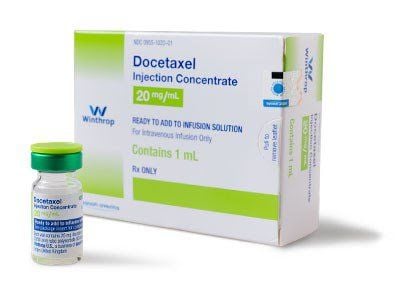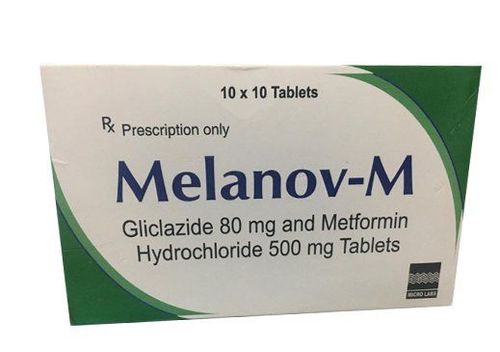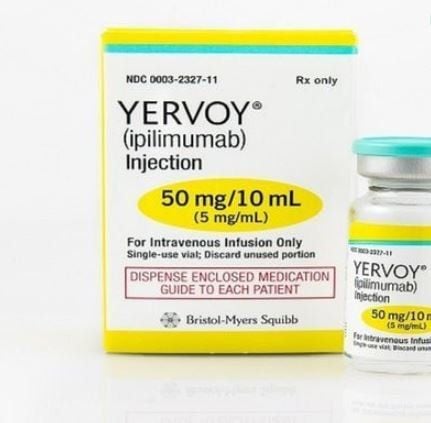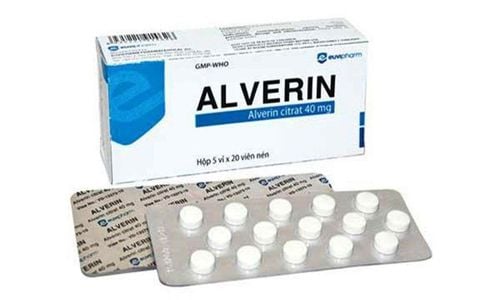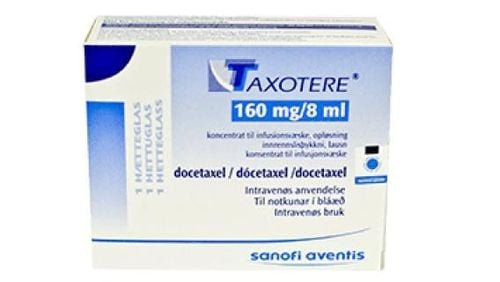This is an automatically translated article.
Posted by Master, Doctor Mai Vien Phuong - Department of Examination & Internal Medicine - Vinmec Central Park International General Hospital
Type 2 diabetes and cancer have many risk factors. The insulin action of metformin may inhibit pathways that are normally amplified in neoplastic tissue. In particular, regulation of inflammation, metabolism, and cell cycle arrest are potential cancer therapeutic targets used by metformin to enhance the antitumor effects of chemotherapy.
1. Overview
In vitro studies and in vivo models have demonstrated the potential of metformin as a chemotherapeutic and radiosensitizer, in addition to verifying its chemotaxis and direct therapeutic activity in tumors. gastrointestinal (DS) tumor. Therefore, these aspects have been considered in many cancer clinical trials. Case-control and cohort studies as well as related meta-analyses have evaluated the risk of gastrointestinal cancer and the use of metformin, particularly in colorectal cancer, pancreatic cancer, and cancer. hepatocyte epithelium. Most clinical studies have demonstrated a protective role for metformin on gastrointestinal cancer risk and survival. On the other hand, the ability of metformin to enhance the effects of chemotherapy on gastric and biliary tract cancers has not been studied. This article reviews current findings on the anticancer mechanism of metformin and its machinery from preclinical and ongoing studies in gastrointestinal malignancies.2. Metformin and stomach cancer
The effects of metformin alone or in combination with cisplatin or rapamycin have been studied in a tumor xenograft model. It demonstrated that metformin alone reduced tumor volume. The combination of metformin with cisplatin, rapamycin, or both enhances the effects of either drug alone and inhibits the peritoneal spread of gastric cancer (GC). Accordingly, Wu performed an in vitro study with AGS cell lines to analyze how binding of metformin to cisplatin or adriamycin or paclitaxel enhanced the effects of each drug. In contrast, Lesan et al showed in vitro that the combination of metformin and cisplatin reduced the effects of cisplatin alone. In recent years, several observational studies have shown that metformin reduces the risk of stomach cancer. The study by Tseng et al demonstrated that the risk of gastric cancer was reduced with metformin use, especially when the cumulative duration lasted more than 2 years. In addition, metformin reduced the risk of stomach cancer, while the opposite was observed with sulfonylureas.
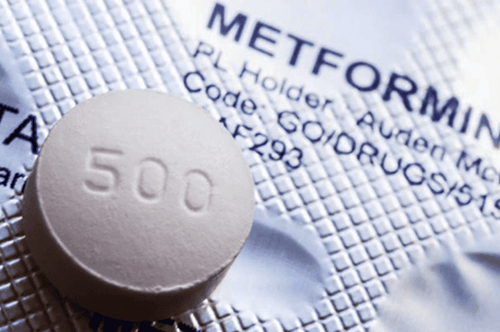
3. What do the studies say?
On the other hand, a study done in the UK did not show a difference in the incidence of stomach cancer in patients taking metformin compared with sulfonylureas. Other reports also did not find any reduction in the risk of stomach cancer associated with metformin. Despite this, a meta-analysis found a 21% reduction in stomach cancer risk with metformin use, with the benefit being more prominent in Asians than in Westerners.
Another meta-analysis of cohort studies including 591077 patients found that the incidence of gastric cancer was significantly lower with metformin therapy than with other types of therapy (HR: 0.763; 95% CI : 0.642-0.905). Two retrospective studies performed by Lee et al and Seo et al concluded that metformin reduces gastric cancer recurrence in gastrectomy patients. Lacroix et al showed that metformin improved OS but not cancer survival, in contrast, Baglia et al found that metformin use had no effect on patient survival. More studies are needed to confirm the effects of metformin in gastric cancer treatment and chemoprevention. Unfortunately, there are very few ongoing clinical trials that analyze this question.
An exciting randomized phase 2 trial (NCT04114136) is underway to evaluate the synergistic effects of metformin, rosiglitazone and anti-PD-1 in the treatment of refractory solid tumors including cancer stomach . Metformin can reduce tumor oxygen consumption, creating a less hypoxic T-cell environment, leading to restore its anti-tumor cell function. Trial NCT04033107 analyzed the combination of metformin and vitamin C in gastrointestinal tumors including gastric cancer.
4. Large amount of evidence is available on the important effect of metformin in reducing the risk and improving the prognosis of some gastrointestinal tumours.
Digestive system tumors are often associated with high morbidity and mortality and their incidence has increased in recent decades. Identification of key risk factors and worse prognostic conditions as well as development of prevention and treatment strategies is being promoted. In this context, forecasting the worldwide burden of cancer due to diabetes and excess weight in the near future is an alarming public health concern. The association of a number of cancers, including many gastrointestinal tumors to diabetes and obesity, is well recognized (IARC, WCRF). Other prevention and treatment strategies should be known. The large amount of evidence presented supports the idea that metformin is important in reducing the risk and improving prognosis of some gastrointestinal tumours.

5. The anticancer effects of metformin have established biological plausibility for clinical data
Although most of the clinical studies presented here are retrospective, often limited by immortality time and selection bias, recent discoveries of preclinical research on anticancer effects of metformin established biological plausibility for the clinical data and reinforced concerns about its effect in carcinogenesis and cancer progression. This clinical and preclinical evidence supports the running of adequately powered trials investigating the clinical use of metformin in the treatment of gastrointestinal tumours. This takes into consideration diabetes status, predictive biomarkers, disease stage, and treatment. With regards to chemical invention, safety, low cost and wide accessibility are the keys to its feasibility. Therefore, replacing metformin for the treatment of gastrointestinal cancer is an area of considerable scientific interest because it focuses on a global public health problem.
6. Larger trials needed
Currently, clinical research is considered a profession with its inherent necessary professional skills. Considering that the low cost of metformin does not compromise the expensive drug repositioning process, the development of this potential anticancer drug has been hampered. Furthermore, the current stage of clinical development of metformin requires testing in large, randomized, genome-guided, multicenter trials. These aspects explain, at least in part, the lack of current research on metformin for cancer prevention and treatment despite a large body of preclinical and clinical evidence suggesting a benefit. the potency of metformin. The authors hope that this comprehensive review integrating potential mechanisms, preclinical and clinical studies of metformin as an antineoplastic agent will alert the gastrointestinal cancer community to the need for further research. study the effects of metformin in more specific clinical situations.
Please dial HOTLINE for more information or register for an appointment HERE. Download MyVinmec app to make appointments faster and to manage your bookings easily.





